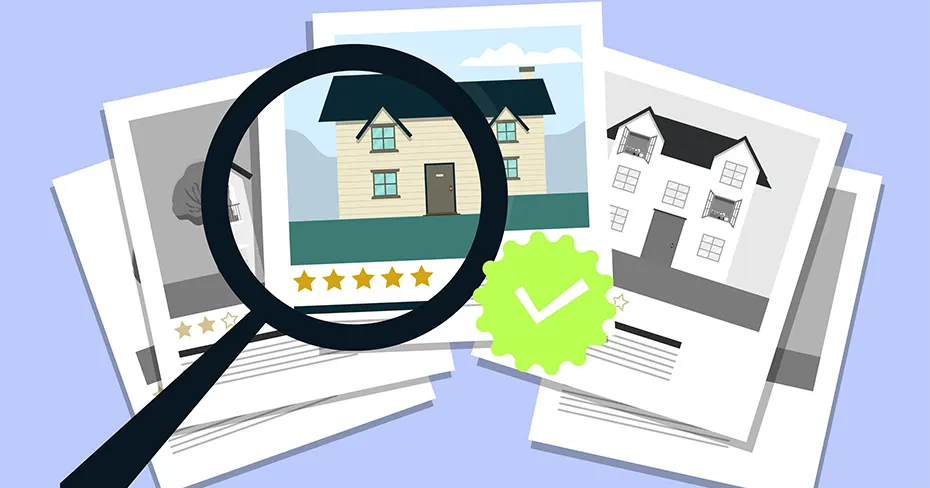What is Due Diligence?
Due diligence is a research and verification procedure conducted before going into any money-generating transaction or agreement. In property, it is cross-checking all facts and figures, risk elements, and legality involved in a property before buying, selling or leasing. It is meant to minimize risks, identify discrepancies, and consummate the deal in the best possible interest of the purchaser or seller.
What Is Due Diligence in Real Estate?
Real estate due diligence goes far beyond even looking at a property or reviewing standard paperwork. Due diligence encompasses complete legal, financial, and physical review of any property, residential, commercial, or land. The due diligence period is the time interval allowed to the buyer to conduct these reviews before the deal is closed.
Types of Due Diligence Services
Property Due Diligence
Property due diligence consists of verification of physical condition, inspection for pre-existing damage, review of maintenance history, and verification of property boundaries. The procedure may include site inspection, investigation of structure, and examination of the connection of utilities.
Land Due Diligence
Land due diligence is a verification that confirms the legal status of the property. Processes include title deeds validation, checking for encumbrance, verification of zoning and land use permits, and checking for any outstanding disputes or litigation. It is crucial for development and agricultural land where regulations are location and use-specific.
For commercial real estate, due diligence covers not only the property but also market potential, competitive environment, financial projections, and regulatory risks. Services would include tenant analysis, lease analysis, revenue review, and operational risks.
Real Estate Due Diligence Companies
Professional due diligence companies offer buyers, sellers, and investors full-range investigation. Their expertise makes the process easy and reduces the risk of costly mistakes. They utilize legal and technical specialists to validate documents, handle negotiations, and issue detailed reports.
Legal Due Diligence Of Property
Legal due diligence shall be conducted to confirm ownership, determine clear title, ensure compliance with local law, and check all government approvals required. These include title confirmation, encumbrance certificate check, checking the agreements, and confirming all statutory approvals.
The Due Diligence Process: Step By Step
Preliminary Document Review
Verify the documents of ownership and approvals.
Title and Encumbrance Check
Review legal history and outstanding liabilities.
Site Inspection
Physically visit the land or property and verify for quality, services, and compliance.
Financial Analysis
Verify property market value, operating expenses, and financial feasibility.
Legal Check
Screen for legal problems, zoning regulations, and environmental regulations.
Regulatory and Compliance Checks
Check documentation such as RERA registration, environment clearances, and occupancy certificates.
Final Report and Risk Assessment
Summarize findings and provide actionable recommendations before closure of transaction.
Why Due Diligence Matters
Comprehensive due diligence uncovers issues affecting current investment value, future income, or legal title. Missing an encumbrance, improper zoning, or pending litigation can destroy an otherwise desirable real estate deal. It protects buyers against fraud, helps sellers with credibility, and ensures smooth transaction for everyone.
Real Estate Due Diligence Companies offer legal, technical, and financial expertise. They navigate through complex regulations, organize paperwork, and ensure nothing slips between the cracks. From initial inspection to registration and title transfer, their role is key to commercial and large-scale property deals.
FAQs
Q. What is property due diligence?
Legal searches, physical inspections, financial valuation, and neighborhood verification.
Q. What is land due diligence?
Title confirmation, land use approvals and encumbrance verification.
Q. Who needs commercial due diligence services?
Investors, businesses, and developers seeking market, legal, and operating risk analysis.
Q. How does legal due diligence take place?
Receipt of and examination of all the legal documents, assessment of litigation risk, and confirmation of regulatory compliance.
Conclusion
Due diligence is not just a step in the procedure; it is the basis for safe and profitable property investment. From establishing legal status to ascertaining market value, the expert ability of Real Estate Due Diligence Companies provides assurance that buyers, sellers, and investors can go forward securely and confidently. Don't postpone due diligence, and don't leave yourself with costly mistakes in property, land, and commercial deals.




